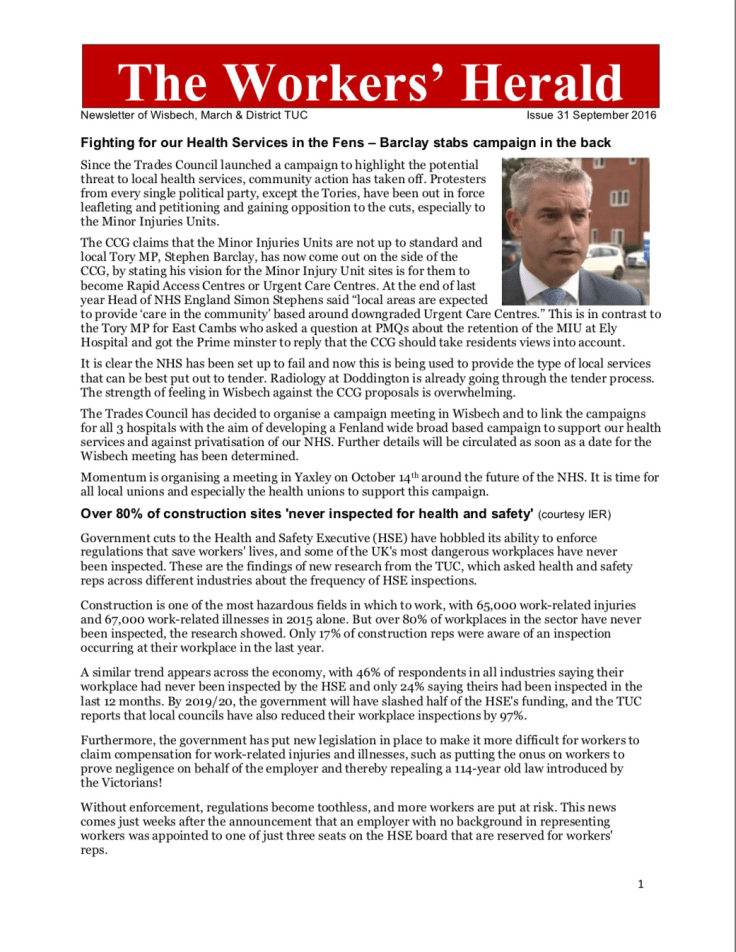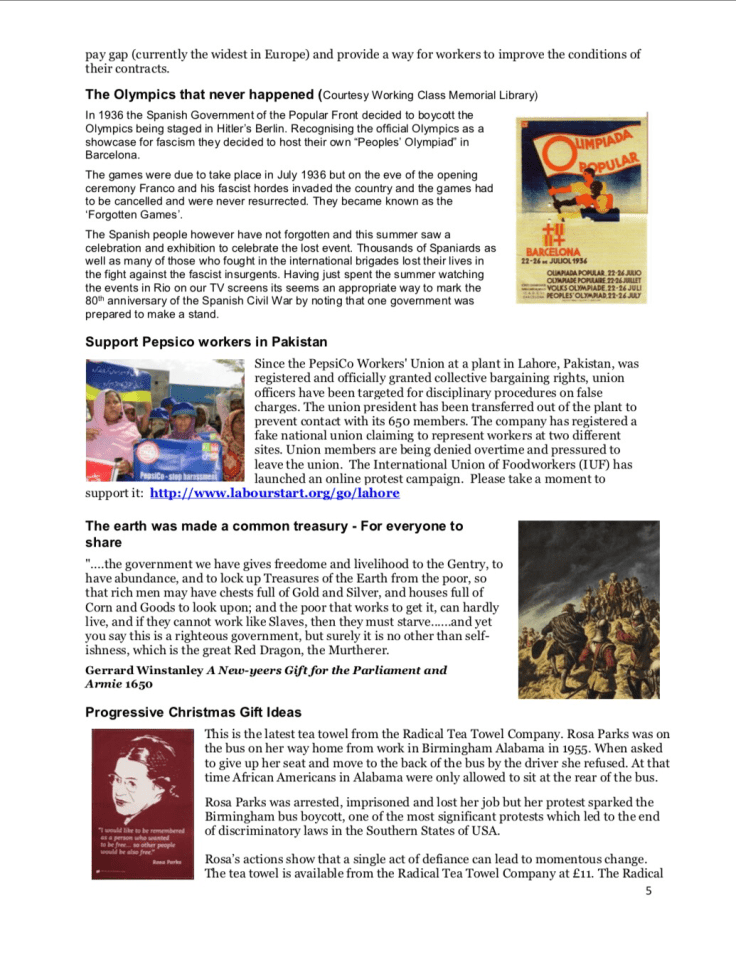Royal Mail Group – Health and Safety (First Aid) Regulations 1981 – Non-Compliant Priority Sites – Joint RMG/CWU Appeal For More First Aider Volunteers:
In the event of injury or sudden illness, failure to provide first aid could result in a casualty’s death. The employer should ensure that an employee who is injured or taken ill at work receives immediate attention.
First Aid Legal Requirements for Employers
The Health and Safety (First Aid) Regulations 1981 state that employers should provide adequate and appropriate equipment and enough trained first aiders to help injured or ill staff. The Health and Safety Executive (HSE) guidance leaflet ‘First Aid at Work Your Questions Answered (INDG214) is attached as a pdf file for your information. Employers are legally required to arrange for the immediate care of any staff who have an accident or become ill while they are at work. These Regulations apply to all workplaces including those with less than five employees and to the self-employed.
Employers must:
Assess first aid needs based on the hazards and risks involved in the workplace(s)
Provide appropriate equipment and enough trained first aiders to help injured or ill staff.First Aid Law Employers must assess the first aid needs based on the hazards and risks in the workplace or workplaces, to help determine how many first aiders are needed and what training they should have.
Things that must be considered are:
Completing a First Aid Risk (needs) Assessment
The Full First Aid at Work Regulations and Health and Safety Executive (HSE) Guidance on first aid at work regulations is available on the HSE Website at:- http://www.hse.gov.uk/firstaid/legislation.htm
The self-employed should make appropriate first aid arrangements for their working environment (even if they work from home). If they work on a site with other self-employed people, they are each responsible for making your own first aid arrangements but may choose to make joint arrangements, subject to written agreement.
The Health and Safety (First Aid) Regulations 1981 state that employers should provide adequate and appropriate equipment and enough trained first aiders to help injured or ill staff. The regulations only cover first aid arrangements for employees and do not place a legal duty on employers to make first-aid provision for non-employees such as the public or children in schools [2][3]. However, HSE strongly recommends that businesses that deal with members of the public (such as shops, retail outlets, visitors, callers offices) should also consider this in their assessment of first-aid needs and that provision is made for them.
The size of the organisation – how many first aiders are needed?
The nature of the work – are the staff at risk of specific accidents or injuries?
If there are multiple sites – do they have different hazards, and how quickly can a first aider move between them (or are first aiders needed in each site or area of a site)?
If there are any staff who:
have medical conditions – is specific training needed for these?
travel, work alone or remotely – do they need a mobile phone and first aid box in case of emergency?
work in shifts or out-of-hours – what arrangements are needed for each shift?For example large, busy Construction sites, Factories, Warehouses, Logistics Depots, Processing Plants, Delivery Units would be high risk and a small Offices with no plant, equipment, machinery, workplace transport etc, would be low risk.Role of the Health and Safety Executive and Enforcement
HSE will prosecute in cases where there is a significant risk, a disregard for established standards or persistent poor compliance with the law.
The HSE is not required to approve first aid training and qualifications, so employers are free to choose their own first aid training provider but are responsible for ensuring the quality of training provider. The HSE provides a syllabus for appropriate content on a first aid at work course, in order to maintain high standards of first aid training. The HSE also provides a ‘due diligence checklist’ to help employers select and evaluate a first aid training provider.
Royal Mail Group – Non-Compliant Priority Sites – Appeal For First Aider Volunteers:
Discussions have been taking place between the CWU, Royal Mail Group SHJE Team, HR, Learning Services and PoFAS (Postal First Aid Association) regarding the considerable shortage of First Aiders and a joint initiative to seek more volunteers and increase the provision of Training Courses and Refresher Courses.
Royal Mail Group’s First Aid Risk Assessment (FARA) Tool has been overhauled and updated and an exercise completed to assess all sites. This has been a considerable exercise, chasing up sites to complete the assessments and audit results.
The completion of the new FARA at all sites has identified a significant legal compliance gap of First Aiders and Royal Mail Group have now shared the list of priority sites in order that the CWU via Area Health and Safety Representatives (ASR’s) and Workplace Health and Safety Representatives (WSR), CWU Branch Reps and CWU Regional Health and Safety Forums can support a joint ongoing, rolling campaign to increase the number of First Aiders and so close the compliance gap.
Attached is a priority site list which the RMG SHE Team are focussing attention upon. There are 650 Offices listed as non-compliant and this excludes SPDOs as the campaign at this stage is concentrating on the larger units to start with DOs, MPUs, MC, LD, RDCs etc. At the start of this campaign around 300 Offices have no First Aiders at all and its estimated that RMG needs 1000 more first aiders nationally across all businesses and all Units!
There are three key activities that we are jointly asking CWU Representatives to give support to:
Encourage individuals to become First Aiders at these sites.
Encourage those existing First Aiders who have recently not re-qualified to do so.
Help with understanding the barriers to individuals volunteering to become First Aiders and feedback – This will then be discussed at the National RMG/CWU/Unite.CMA Joint First Aid Steering Group.For your information, in addition to the combined activity of encouraging new / existing First aiders, there will be an ‘audit’ of the FARA returns by the RMG SHE Advisors to ensure that the assessments have been completed accurately as per the SHE Standard by Office Managers and PiCs. The identified Managers have received communications directly instructing them on the need for compliance. The SHE is support the operation in achieving compliance.
All Royal Mail Management Enquiries should be directed to James Cannon RMG SHE Policy Manager Mobile: 07587880744 Email: james.cannon@royalmail.com
RMG will provide updated lists on a regular basis to monitor progress and I thank you in advance for your support.
The priority for now is to ensure we have the minimum required First Aid presence at sites. Managers are being required to submit requests for training to:- hrsctrainingdeliveryfirstaid@royalmail.com.
Yours sincerely
Dave Joyce
National Health, Safety & Environment Officer
Email Attachments – Click to download
LTB 572/16 Royal Mail Group – Health and Safety (First Aid) Regulations 1981 – Non-Compliant Priority Sites – Joint RMG/CWU Appeal For More First Aider Volunteers:
First Aid Priority Sites
First Aid at Work Your Questions
Share this with your friends







